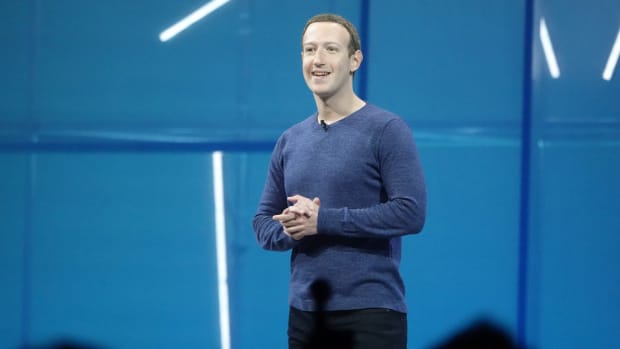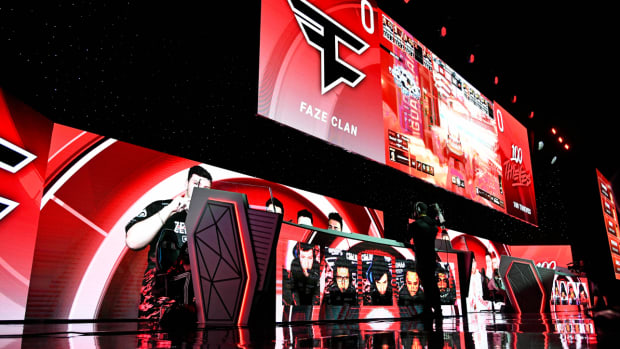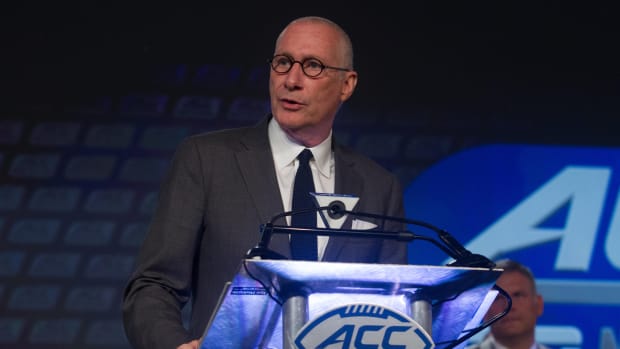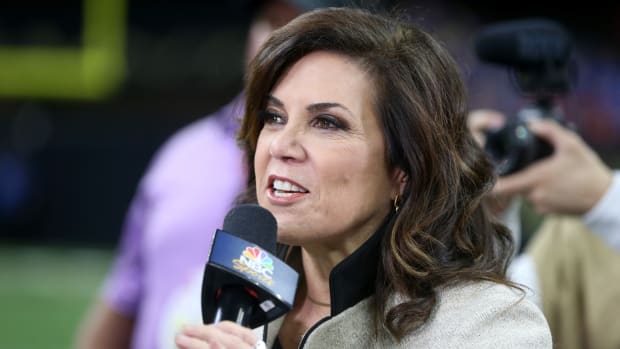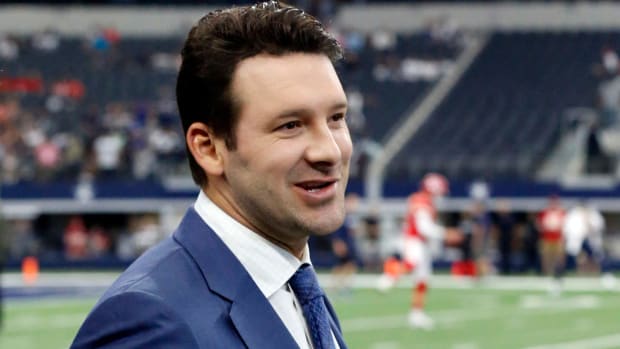ESPN Employees Respond to Jemele Hill Controversy over Trump Comments
Last month ESPN commentator Jemele Hill, as part of an SI Media Panel on social media interaction in the age of Donald Trump, offered insight into the challenges of being a prominent ESPN analyst discussing social issues on social media.
“I have to talk myself out of sending certain tweets several times a day,” Hill told SI. “When you're under the leadership of a President that refuses to condemn Nazis and racism, how am I supposed to function the rest of the day and pretend as if I give a shit about Blake Bortles losing his job? That's the conversation I'm having with myself on daily basis. I know there are sports fans looking for me to provide them with an ‘escape,’ but as a woman and person of color, I have no escape from the fact that there are people in charge who seem to be either sickened by my existence or are intent on erasing my dignity in every possible way. So today, my feed is probably a little edgier than it was. It's reflective of all the emotion and conflict I feel. I think others feel the same way.”
On Monday night Hill tweeted that Trump was “unqualified and unfit to be President” and “a white supremacist who has largely surrounded himself w/ other white supremacists.” Those tweets came in the middle of a conversation with readers and were eventually amplified into the larger media ecosystem. The following day, ESPN management released a statement via its PR office saying that comments Hill made about Trump during an interaction with her Twitter followers “do not represent the position of ESPN. We have addressed this with Jemele and she recognizes her actions were inappropriate.”
ESPN declined to comment on what discipline was given to Hill. She has been off Twitter since Tuesday morning. The company often tells employees to stay off social media after any controversy.
On the topic of talking politics on Twitter, Hill told SI last month that “it’s very important to make the distinction between politics and commentary, information and discussion of social issues. I find that the majority of what comes into my timeline is related to social issues. Nobody is dying to engage in a discussion about repeal and replace, at least not with me. The percentage of people who want to discuss social issues has, however, increased substantially. Everyone is consumed with what's happening in our country right now. I don’t tweet a lot about politics. I do tweet more about social issues, which I consider to be issues of morality. Racism isn’t politics. Racism is an issue of right and wrong. Tweeting about significant issues that impact marginalized people isn’t politics. That's right and wrong. If I had to guess, I would say I’ve increased my tweets about social issues about 20%. I’ve tried really hard not to let these issues consume my feed, because there are a lot of days where I just want to have fun on Twitter. I want to debate with Power and Insecure fans about what's happening on the show. I want to make jokes and have silly sports arguments, but unfortunately those days feel like they happen less.”
The issue of where the line exists at a place like ESPN remains unclear. It has a social media policy about politics on social media but that policy is violated daily de facto. As always, the company often finds itself with self-inflicted wounds because of discipline inconsistency. Where Colin Cowherd receives no discipline for comments about Sean Taylor, Bill Simmons is disciplined for comments about Roger Goodell. Where at-will employee Doug Adler loses his tennis job for what appears to be an obvious overreaction by executives, other executives get promotions for presiding over analysts questioning Robert Griffin III’s blackness.
Where is the line?
“If I'm answering for myself, my role makes it clear that sharing a political opinion is out of bounds,” said T.J. Quinn, a longtime reporter for ESPN. “That's not just the company's position, it's my own. I'm a reporter, not a columnist or commentator. It's important for my work, which constantly crosses over into the legal and political worlds, that people are dealing with my reporting, not my personality. I know the arguments that objectivity is a myth; I don't agree. I have some deeply held beliefs and in a climate like this it can make you nuts to hold back, but that's what I accepted when I accepted this job. For anyone who is paid for their opinion, however, there is a completely different relationship with the audience. If I ever change roles and anyone wants to pay me for my opinions, my relationship will change as well.”
“What is permitted, and what I consider to be proper are two different things,” said Bob Ley, the host of ESPN’s Outside The Lines. “The usual standard of saying only what you would with a microphone in your hand apparently no longer applies. These are emotional political times. This is one of the consequences.
“It’s totally predictable the way the wired nation has split down the middle on Jemele's remarks. Totally predictable. But it falls into a time and space where our network's perceived place in the political landscape has never been more scrutinized.”
Quinn sent out public support for Hill on his Twitter feed. Asked how he perceived the internal reaction to her comments, he said, “I don't think it's my role to comment on what she said or how the company is dealing with it. No one would care, anyway. What got to me was the racist and misogynist backlash that a colleague has to deal with day in and day out. It's sickening. A tweet in support of a colleague isn't much, but I see colleagues of color and who are women deal with this relentless stream of abusive bullshit every day. The bare minimum is to show those colleagues that they're not alone.”
Hill is one of the most popular on-air talents at ESPN because she has used her platform and standing to give others opportunities, particularly on her “His and Hers” show where many ESPN-ers have gotten much needed TV reps. Ley, wired to ESPN internally, said he expected there would be mixed reactions within the company—not for Hill the person, but for a front-facing talent tweeting out such an opinion.
“I love Jemele and consider her a friend, and she has many here,” said Ley. “I've worked with her on a number of shows and projects and she was a guest on OTL even before she joined us. I'm well aware a number of folks will agree with the substance of her comments while others will reject them just as readily. You can love the sinner and hate the sin. It clearly was not a proper use of a company-provided megaphone. There are important responsibilities that come with the many perks, and chief among those these days is realizing your words carry the weight of your platform. You speak for more than yourself.”
“I don't know what the reaction will be and I don't want to speculate,” Quinn said. “But I know that even people who might disagree with her politically have great respect for her as a person and a colleague. She's a pro and smart as hell and works hard and is utterly devoid of ego. There are damned few like her.”
One of the people I wanted to reach out to was Jim Trotter, one of the most thoughtful voices at ESPN. He clearly spoke for a lot of ESPN employees, particularly those of color, and was emphatic on his support for his colleague.
“Black folk are tired and we have to recognize some of the things that are going on in this country and we have to be honest about it and meet it head on,” said Trotter, an ESPN senior writer. “If you are black and know the history of our country, you can understand her frustration. It is time we stop pretending it is not true. The reason I tweeted what I tweeted is I know Jemele, I have spent time with her, I know what she is about, and I wanted to say that I support her as a friend and a colleague. If anyone has a problem with that, that is on them.”
